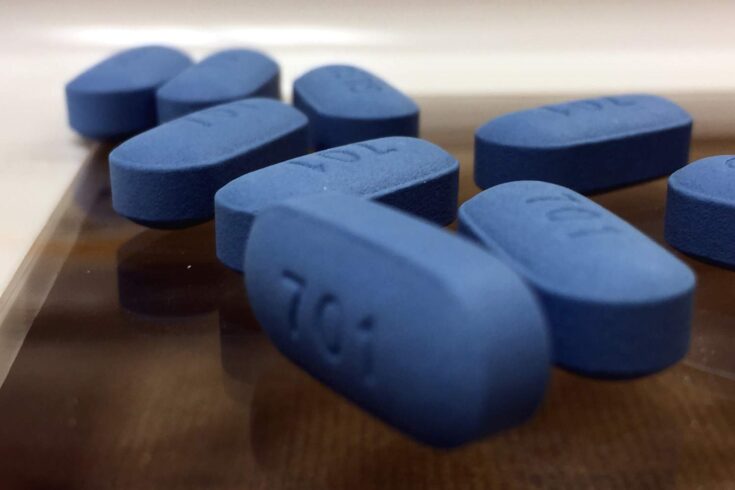PrEP is a type of infection control known as ‘pre-exposure prophylaxis’. It involves providing antiretroviral drugs to people before HIV exposure, to prevent infection. This prevention strategy targets people who are HIV negative, but are at high risk of infection.
In the UK, around one third of people infected with HIV are not aware of their infection. They cannot benefit fully from antiretroviral therapy for their own health, or to prevent HIV transmission to their partners.
For uninfected high-risk people, having a way to prevent HIV infection through PrEP could help save lives.
About the project
PrEP was already known to reduce the incidence of HIV infection in placebo controlled trials. The PROUD study, launched in 2012, was designed to see if the same effect would be found in a real-world situation where participants knew they were taking an active drug.
It looked at whether offering daily HIV PrEP to men who have sex with men was a reliable way to prevent them from becoming infected if exposed to the virus.
The study aimed to address outstanding questions such as:
- would taking PrEP change sexual risk behaviour, for example increasing the number of partners they have sex with without using condoms
- would it be cost-effective to make PrEP available on the NHS.
The study was led by the Medical Research Council (MRC) Clinical Trials Unit at University College London and Public Health England, in partnership with the pharmaceutical company Gilead. Gilead manufactures the PrEP drug Truveda.
Study results indicate PrEP treatment reduces the risk of HIV infection by 86% for a high-risk group of people.
Based on the PROUD trial and population modelling, a 2017 Lancet paper estimated that PrEP would save the NHS over £1 billion over an 80-year period (£12.5 million a year).
Impacts of the project
The trial leader Professor Sheena McCormack and the rest of the team have worked with the NHS and local authorities about funding and administering this vital HIV prevention option to groups that are at high risk of infection.
In July 2017 NHS Scotland made PrEP available through sexual health clinics. Wales and Northern Ireland started offering PrEP through pilot trials.
In 2016, NHS England launched a PrEP Impact Trial with the aim of recruiting 10,000 participants in three years. By July 2018 the trial had recruited 7,000 participants across 139 clinics.
In October 2021, early results from the PrEP Impact Trial showed that gay and bisexual men enrolled in the trial had 87% fewer HIV infections than a comparable group of sexual health clinic attendees who did not take PrEP.
Find out more
Visit the PROUD study website.
Top image: Tablets of Truvada, used for HIV pre-exposure prophylaxis.

